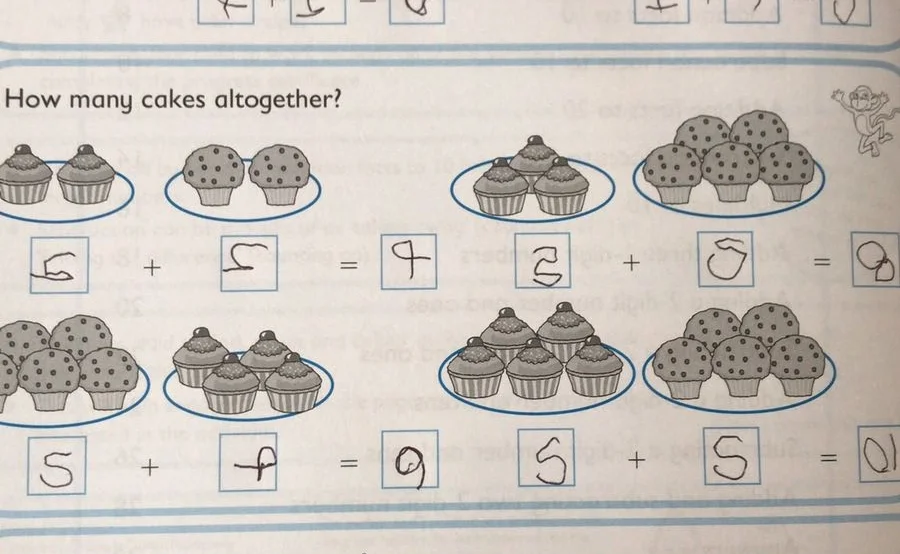You may have seen that Little Forest Folk Chiswick recently had an Ofsted inspection, grading us as Outstanding, in which the inspector commented ‘Children thrive in this nursery. They gain a superb understanding of early literacy and mathematical skills’.
It’s interesting that the inspector chose to hone in on literacy and maths and to call the learning that happens in these areas ‘superb’, a word that you rarely see in Ofsted inspection reports. We thought it worth sharing this, as we feel this is the area that most concerns parents considering an early years play-based education in the forest. Parents worry how children will learn maths and literacy when we don’t have explicit teaching sessions in these areas.
We’ve mentioned before that Little Forest Folk at times feels like a social experiment. A carefully considered social experiment, with our practice based on research, experience and evidence from other sources, but still, an experiment.
This year has been the first year that we have had children completing their reception year with us in the forest. Previously children have enjoyed wonderful, idyllic play based learning with us for a couple of years, but have then been moved onto traditional school for reception. This year we had some rebels across our 5 nurseries, including myself, who weren’t ready for our little 4 year olds to start formal education and who instead opted for another year of play, joy and self-directed nature education. The results have been astonishing.
For the past 3 years, we have watched in awe as our 2 and 3 year olds show incredible development in all 7 areas of learning. Of course, they tend to develop particularly strongly in the prime areas of Communication & Language, Personal, Social & Emotional Development and Physical Development, but we still observe and record strong and wonderful developments in Literacy, Understanding the World, Creative Arts and Design and Mathematics. We’ve seen these children leave us to move onto school reception and thrive, being perfectly equipped with the skills, knowledge and attributes they need to be successful in their lives. As the latest Ofsted inspector reports, children gain skills that ‘prepare them exceptionally well for school’.
What we’ve never seen before this year, is what happens when children stay with us for that reception year. And it’s been awe inspiring. We often lament why the world is so obsessed with teaching children, when we observe that if we give them freedom, support and create the right environment, they are completely capable of directing their own learning. This has never been more evident than the past year. If we think about what the past year has held for our reception children – building time machines, experimenting with gravity, trajectory, trying to understand thrust and lift, creating works of art, building dens, training to be warriors, using tools to build their own toys, role-playing evolution, face-painting each other, dancing, jumping, climbing, running and balancing, it’s a beautiful thing to have been a part of.
These lucky children haven’t seen a single worksheet, or sat at a single desk. Until this week, when one of our reception children, having seen an older sibling doing homework, asked if he could do a worksheet. Not being worksheet sort of people, we wanted to follow his interest, in the moment to see where he could go with it, but didn’t have an appropriate worksheet available. So, we gave him what we did have. An older child’s year 1 & year 2 maths workbook.
This child has never done formal maths lessons, and nobody has taught him maths, but nature play tends to involve lots of maths and science-based play, so he’s played enormously with maths. As was evident when he flew through the worksheet aimed at children 1-2 years older than him, who have already completed a reception year at school. Aside from a brief moment of confusion as to why the worksheet had drawings of insects to count and add instead of actual tangible things to hold or the actual numbers involved in the calculations, he sat down and in a few minutes completed two pages of the workbook. His numerals were often mirrored instead of being formed correctly, not a concern for us as we do not see mirror writing as intrinsically wrong, but merely a feat of action generalisation. Children often learn the shape of a letter or numeral before they learn the direction for writing it.
What astounds us in this case, is the mathematical skills that this child and our other reception children possess. They don’t see maths as something they can’t do, or something difficult. And neither do any of our children. They don’t even particularly notice they are learning maths. They simply develop their quantitative reasoning, mathematical skills and knowledge from observing their peers and being supported by our Educators in their play. They are intrinsically motivated to acquire these skills as they need them to take their play to the next level. We don’t teach them maths, they play with maths, and develop incredible competence and confidence as a result.
Leanna Barrett - Little Forest Folk Founder





